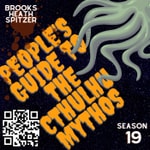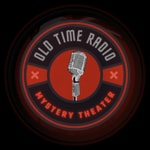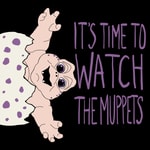Radio Archive – Details, episodes & analysis
Podcast details
Technical and general information from the podcast's RSS feed.

Radio Archive
Archive
Frequency: 1 episode/7d. Total Eps: 29

Recent rankings
Latest chart positions across Apple Podcasts and Spotify rankings.
Apple Podcasts
🇨🇦 Canada - musicHistory
26/10/2024#84🇨🇦 Canada - musicHistory
25/10/2024#76🇨🇦 Canada - musicHistory
24/10/2024#62🇨🇦 Canada - musicHistory
23/10/2024#52🇨🇦 Canada - musicHistory
22/10/2024#41🇨🇦 Canada - musicHistory
21/10/2024#34🇨🇦 Canada - musicHistory
20/10/2024#22🇩🇪 Germany - musicHistory
13/10/2024#77🇩🇪 Germany - musicHistory
12/10/2024#70🇩🇪 Germany - musicHistory
11/10/2024#59
Spotify
No recent rankings available
Shared links between episodes and podcasts
Links found in episode descriptions and other podcasts that share them.
See allRSS feed quality and score
Technical evaluation of the podcast's RSS feed quality and structure.
See allScore global : 53%
Publication history
Monthly episode publishing history over the past years.
Gang Busters: The Case of the Kidnapped Paymaster
Episode 29
vendredi 13 janvier 2023 • Duration 24:02
Mr. District Attorney: Case of the Supermarket Killer
Episode 28
vendredi 6 janvier 2023 • Duration 26:05
Mr. District Attorney is a popular radio crime drama, produced by Samuel Bischoff, which aired on NBC and ABC from April 3, 1939 to June 13, 1952 (and in transcribed syndication through 1953). The series focused on a crusading D.A., initially known only as "Mister District Attorney," or "Chief", and was later translated to television. On television the D.A. had a name, Paul Garrett, and the radio version picked up this name in the final years when David Brian played the role. A key figure in the dramas was the D.A.'s secretary, Edith Miller (Vicki Vola). Created, written, and directed by former law student Ed Byron, the series was inspired by the early years of New York governor Thomas E. Dewey. It was Dewey's public war against racketeering which led to his election as governor. Phillips H. Lord, creator of Gangbusters, helped to develop the concept and coined the title. Byron lent an air of accuracy and immediacy to his scripts through close study of crime statistics, a library of criminology texts, following the newspapers, and even going around rough bars to gain tips, background, and color from crooks and police alike. His techniques sometimes enabled Byron to predict major crime waves before the news broke. Produced throughout its run in New York City, the series began as a fifteen minute serial, becoming a half hour, self-contained series three months later. During 1942, Mr. District Attorney began battling Nazis, leading to conflicts with the FBI when the scripts reflected life too closely. Cast and characters: Mr. District Attorney - The nameless title role was played by several actors throughout the run, with the breakdown as follows: Dwight Weist (1939 serials); Raymond Edward Johnson (1939 half hour shows); Jay Jostyn (1940 through 1952 - Jostyn also guest starred in the role in mystery sketches for the game show Quick as a Flash); David Brian (1952-1953 syndication). Voice of the Law - The show's signature was the opening announcer, known as the "Voice of the Law," who defined the creed and duties of Mr. District Attorney. The role was played by Maurice Franklin and also Jay Jostyn, prior to taking over the lead role Miss Miller - Edith Miller was the district attorney's faithful secretary, played throughout the run by Vicki Vola Len Harrington - The D.A.'s chief investigator, a former cop; played by Walter Kinsella, who had been heard in various police roles during the early years, and by Len Doyle from 1940 onward. Other supporting players and guests on the series includeded such noted actors as Paul Stewart and Frank Lovejoy.
The Great Gildersleeve: Mystery Voice
Episode 19
vendredi 4 novembre 2022 • Duration 29:50
The Great Gildersleeve is a radio situation comedy broadcast from August 31, 1941, to March 21, 1957. Initially written by Leonard Lewis Levinson, it was one of broadcast history's earliest spin-off programs. The series was built around the character Throckmorton P. Gildersleeve, a regular element of the radio situation comedy Fibber McGee and Molly. The character was introduced in the October 3, 1939 episode (number 216) of that series. The Great Gildersleeve enjoyed its greatest popularity in the 1940s. Actor Harold Peary played the character during its transition from the parent show into the spinoff and later in four feature films released at the height of the show's popularity.
In Fibber McGee and Molly, Peary's Gildersleeve had been a pompous windbag and nemesis of Fibber McGee. "You're a haa-aa-aa-aard man, McGee!" became a Gildersleeve catchphrase. The character went by several aliases on Fibber McGee and Molly; his middle name was revealed to be "Philharmonic" in "Gildersleeve's Diary" episode on October 22, 1940.
"Gildy" grew so popular that Kraft Foods—promoting its Parkay margarine—sponsored a new series featuring Peary's somewhat mellowed and always befuddled Gildersleeve as the head of his own family.
The Whistler: Black Magic
Episode 18
vendredi 28 octobre 2022 • Duration 29:32
You're walking alone on the street at night, but then you hear another set of footsteps and a haunting tune being whistled by an unseen stranger. Fritz Lang used an similar premise in his 1930s German movie with Peter Lorre playing M, a psychopathic murderer of children. But the American radio series was even creepier. The unseen Whistler didn't kill anyone (that we know of), but he certainly loved watching murders take place, narrating them for us, and chuckling at the suffering of others instead of doing anything to stop it. Unlike M, he was never caught. He kept walking the streets every week for thirteen long years, whistling his ominous thirteen notes and telling us another tale of bizarre fate. Perhaps Fate is who the Whistler really was? He never provided any sir name, and the killer was usually punished by some twist of fate that only The Whistler seemed to expect. It is very likely The Whistler was inspired by The Shadow, which began nearly a decade earlier. Like the Shadow, the Whistler seemed to enter and exit the criminal underworld without ever being seen. He would watch the evil doers carry out their schemes, yet they never saw him, even though he would tell us what they were thinking in their presence. His voice sounded equally sinister to The Shadow, too. It was was a slithering tenor, hissing the "s's" and often laughing "heh-heh-heh-hehheh!" at the foolishness of the guilty. Both series had similar opening lines: The Shadow "knew what evil lurked in the hearts of men", whereas The Whistler "knows many strange tales hidden in the hearts of men and women who have stepped into the shadows." When Bill Forman served 1/2 year in the military, Marvin Miller substituted as The Whistler. Also like The Shadow, several different actors played the title role over the course of The Whistler series. Bill Forman played it the most, but his announcer (Marvin Miller) substituted for him during the six months of his army duty (Buxton, 256). Gale Gordon and Joseph Kearns voiced the Whistler in earlier days, while Everett Clarke played the character in 1947 and Bill Johnstone did in 1948 (Dunning, 719). The last similarity was the saddest one. Both series ended about the time frame (in the mid 1950s). Crime increased in the following decades, maybe because the guilty felt they were no longer being watched and could get away with murder. Or could it be that the Whistler is saving up some more great stories to tell us about in the future?
The New Adventures of Nero Wolfe: Killer Cards
Episode 17
vendredi 21 octobre 2022 • Duration 28:49
Nero Wolfe first appeared on radio on July 5, 1943 on the NBC Blue Network in The Adventures Of Nero Wolfe. This series didn't last long and starred Santos Ortega as Wolfe and Luis Van Rooten as Archie. The second series was during 1945 on the Mutual network in The Amazing Nero Wolfe. This lasted only until December 15, 1946 and starred Francis X. Bushman and Elliot Lewis as Archie. The third series was known as The New Adventures of Nero Wolfe. Starting on October 20, 1950 it lasted only until April 27, 1951. It starred Sidney Greenstreet as Nero Wolfe. The part of Archie was played by Lawrence Dobkin for the first twelve shows. Gerald Mohr took over for the next four shows after making a guest appearance in the twelfth show. Harry Bartell was Archie for the remainder of the series. Nero Wolfe, also known as the galloping gourmet, was an armchair detective. He rarely left the house; instead his assistant, Archie Goodwin, would collect the facts and report back. Nero Wolfe would probably not have taken on many cases had he not needed the clients' money to pay for his two true passions: fine food and the collecting of orchids. Archie Goodwin, Wolfe's male secretary, prodded him into taking cases whenever the bank balance got a little low. Wolfe, as a character, is difficult to like. He's a self-assured type that does nothing unless he wants to, making his assistant, Archie Goodwin, deal with the outside world. The New Adventures of Nero Wolfe is based on a series of books begun in 1934 by Rex Stout. There were two previous incarnations of the radio series: The Adventures of Nero Wolfe which ran in 1943 and 1944 and The New Adventures of (aka The Amazing) Nero Wolfe which ran in 1945 to 1946. Very few episodes from these earlier series are in circulation today. There was also one later series created by the Canadian Broadcasting Company in 1982.
Ranger Bill: Catching a Big Fish with a Small Hook
Episode 16
vendredi 14 octobre 2022 • Duration 29:37
Ranger Bill, Warrior of the Woodland, struggling against extreme odds, traveling dangerous trails, fighting the many enemies of nature. This is the job of the guardian of the forest, Ranger Bill. Pouring rain, freezing cold, blistering heat, snows, floods, bears, rattlesnakes, mountain lions. Yes, all this in exchange for the satisfaction and pride of a job well done." That was the opening of Ranger Bill, a Christian radio adventure serial produced under the auspices of the Moody Broadcasting Network and the Moody Bible Institute. There were 206 episodes of Ranger Bill, which ran from 1950 to 1954 in a 15-minute format on WMBI in Chicago, and in syndication as a 30-minute show from 1954 to 1962. The series followed the adventures of Park Ranger Bill Jefferson. Miron Canaday starred as Bill, the chief forest ranger in the small Rocky Mountain town of Knotty Pine, where the former US Marine lived with his mother. Ranger Bill was your standard radio hero, a paragon of fitness and virtue who could resolve nearly any situation. Ranger Bill and his friends were faced with many situations to solve over the years, from the mundane, like finding lost kids or investigating the problems racing boats were causing on the lake, to the fantastic, including several elephant attacks, spacemen apparently coming from a meteor and trying to find a lost treasure in the Amazon, all the while stressing positive Christian values for young people. Friends that figured prominently in Bill's adventures included Stumpy Jenkins, an eagle-eyed ranger known for his marksmanship and often called "the Old Timer"; Henry Scott, Bill's teenage ward, was learning the ways of the woods by helping out Bill in the park, along with young ranger Ralph Carpenter; and Gray Wolf, a ranger and a member of the Dakota tribe. Gray Wolf spoke in the typical broken English for the era and genre, but knew how to use the traditional ways of his people and modern forest management methods to help Bill protect the woods. The first episode introduced Bill's boss, Colonel Anders, who sent Bill and Henry to blow up the Pine Ridge Dam in order to stop a forest fire threatening the Pendleton Valley. The program is still broadcast on the Children's Sonshine Network and on His Kids Radio, both on regional radio stations and internet simulcasts, along with several other similarly Christian-themed programs.
The Adventures of Sam Spade: Sugar Kane Caper
Episode 15
vendredi 7 octobre 2022 • Duration 29:03
The Adventures of Sam Spade was first heard on ABC July 12, 1946, as a Friday-night summer series. The show clicked at once, and went into a regular fall lineup on CBS September 29, 1946. From then until 1949, Sam Spade was a Sunday-night thriller for Wildroot Cream Oil, starring Howard Duff in the title role. With Duff's departure, NBC took the series, leaving it on Sunday for Wildroot and starring Stephen Dunne as Spade. This version lasted until 1951, the last year running as a Friday sustainer.
Spade's appearance on the air marked an almost literal transition from Dashiell Hammett's 1930 crime classic, The Maltese Falcon, where he first appeared. Spade was a San Francisco detective, one of the most distinctive of the hardboiled school. His jump to radio was wrought by William Spier, who had already carved out a reputation as a master of mystery in his direction of another highly rated CBS thriller, Suspense.
Spier was editor, producer, director. A lifelong radio man, he had broken in during the primitive days of 1929 and earned his stripes serving on such pioneering shows as The March of Time. Spier assembled the writing team of Bob Tallman and Ann Lorraine and began putting Spade together. He was impressed by the deep, cynical, tough qualities in Howard Duff's voice.
Duff had long experience as an actor, a career that traced back to his high school days in Seattle. He had originally wanted to be a cartoonist, but the sound of applause in a senior-year play at Roosevelt High changed all that. Suddenly stagestruck, Duff began hitting the boards. He worked in local theatre groups and craked radio as an announcer on a local station. When the war came, Duff went with Armed Forces Radio as a correspondent, a job he held for more than four years. He emerged in Hollywood in 1945, a seasoned but unsung microphone veteran. With his perfect voice and polished delivery, it wasn't long before Duff was playing supporting parts in top dramas of the air.
Sam Spade shot him to national fame. The character, as Spier saw it, would Have many easily identifiable traits. The first thing Spade usually wanted to know was, "How much money you got on you?" "Two hundred? Okay, I'll take that and you can pay me the rest later." But Spade wasn't a spendthrift -- he never threw silver-dollar tips a la Johnny Dollar, even if he could have put it on his expense account. Spade favorite way to travel was by streetcar; it took him almost anywhere for a dime. He disliked cabs and liked cheap booze. You didn't need more than an occasional, subtle reminder: those glasses clinking every week as Sam opened his desk drawer and began dictation were enough. We knew Sam and Effie weren't toasting each other with Sal Hepatica. Sam was a man who worked out of his desk, and the thing closest at hand in that top drawer just might be a half-empty bottle of Old Granddad.
His clients got bumped off with startling regularity. Then Sam sent his report (and presumably his bill) to the widows. He dictated his cases to his faithful secretary, Effie Perrine, a babbling, man-hungry female who might have been the adult Corliss Archer. Each case came out as a report, dated, signed, and delivered. Spade license number - 137596 - was always included in the report. The cases unfolded in chronological order, the scenes shifting between Sam and Effie and the dramatization of Sam's dictation. Effie, who always seemed on the verge of tears whenever Sam became involved (as he did weekly) with a curvy client, was beautifully played by Lurene Tuttle, Jerry Hausner played Sam's lawyer, Sid Weiss. Lud Gluskin directed the music and Dick Joy announced. Soon after the series began, Ann Lorraine dropped her writing duties, and Gil Doud became Bob Tallman's writing partner.
The show ran in its original format through the episode of September 17, 1950. Then Howard Duff quit for a fling at movies, and Sam Spade languished for two months. On November 17, 1950, it returned on NBC. Duff's absence was handled in usual network form: by importing a new voice. NBC ran the show as though nothing had happened, using Steve Dunne as a boyish-sounding Spade. Spier and Miss Tuttle followed the series over, and for a time so did Wildroot. Wildroot and the listeners all got wise around the same time. Dunne was a good radio man, but he sounded like Sam in knee pants.
Duff once said that Hammett had done such a great job in The Maltese Falcon that any actor could have played Sam and become a radio hero. He saw that theory proved wrong. In spades.
Information for this audio clip came from John Dunning's "Tune In Yesterday The Ultimate Encyclopedia of Old Time Radio", and your Audio Series Descriptions Moderator (Roger Hohenbrink).
Broadway is My Beat: The Eve Hunter Murder Case
Episode 14
vendredi 30 septembre 2022 • Duration 30:19
Broadway's My Beat, a radio crime drama, ran on CBS from February 27, 1949 to August 1, 1954. With music by Robert Stringer, the show originated from New York during its first three months on the air, with Anthony Ross portraying Times Square Detective Danny Clover. John Dietz directed for producer Lester Gottlieb.
Beginning with the July 7, 1949 episode, the series was broadcast from Hollywood with producer Elliott Lewis directing a new cast in scripts by Morton Fine and David Friedkin. The opening theme of "I'll Take Manhattan" introduced Detective Danny Clover (played by Larry Thor), a hardened New York City cop who worked homicide "from Times Square to Columbus Circle -- the gaudiest, the most violent, the lonesomest mile in the world."
Danny Clover narrated the tales of the Great White Way to the accompaniment of music by Wilbur Hatch and Alexander Courage, and the recreation of Manhattan's aural tapestry required the talents of three sound effects technicians (David Light, Ralph Cummings, Ross Murray). Bill Anders was the show's announcer.
The supporting cast included regulars Charles Calvert (as Sgt. Gino Tartaglia) and Jack Kruschen (as Sgt. Muggavan), with episodic roles filled by such radio actors as Irene Tedrow, Barney Phillips, Lamont Johnson, Herb Ellis, Hy Averback, Edgar Barrier, Betty Lou Gerson, Harry Bartell, Sheldon Leonard, Martha Wentworth, Lawrence Dobkin and Mary Jane Croft.
Lux Radio Theater: The Dark Angel
Episode 13
vendredi 23 septembre 2022 • Duration 59:32
Lux Radio Theatre was indisputably the biggest, most important, most expensive drama anthology program on radio. It ran from October 14, 1934 until June 7, 1955, then continued on television as Lux Video Theatre until 1957. In all, some 926 episodes were broadcast, providing a record of the most important entertainment events in American theatre and, later, film.
The show was first broadcast on the NBC Blue Network on Sundays at 2:30 PM. The show featured adaptations of successful Broadway plays when it was produced out of New York, such as Seventh Heaven, the first production starring Miriam Hopkins, Smilin' Through, Berkeley Square, Daddy Long Legs, Peg O' My Heart and Way Down East. On July 29, 1935, the show moved to Monday night at 9:00 PM on CBS, where it would stay until June 29, 1954. The show moved to Hollywood on May 25, 1936 with the production of The Legionnaire and the Lady, based on the film Morocco, starring Marlene Dietrich and Clark Gable. The audience for this production was estimated as high as 40 million. The show featured many of the most important films of the period, adapted to fit the 60 minute time slot. Some of the titles for 1939 should indicate the caliber and range of shows: Stage Door, Ceiling Zero, So Big, It Happened One Night, The Lives of a Bengal Lancer, Lady for a Day, The Life of Emile Zola, Tovarich, Only Angels Have Wings, The Prisoner of Zenda, The Awful Truth, Wuthering Heights, You Can't Take It With You, The Old Maid and Goodbye, Mr Chips. For its last season, (1954-1955), the show moved to Tuesday nights at 9 on NBC.
Lux Radio Theatre was always broadcast live, with a studio audience and a full orchestra accompanying the performance and providing musical transitions between scenes. As many film actors were used to numerous takes and not live performance, they sometimes suffered acute stage fright before the show. However, since most received $5,000 for their performance -- in addition to free publicity for upcoming pictures -- actors appeared in their original screen roles if they were available. Indeed, production would halt if necessary on a film if performers were called to appear on Lux. When the actors were not available, others stepped in. The plays were assembled and rehearsed for a week, in sharp contrast to many other shows, which required a minimal of an actor's time. Regular players for the series included Jim and Marian Jordan, otherwise known as Fibber McGee and Molly. Hosts included Cecil B. DeMille (1936-1945), William Keighley (1945-1952) and Irving Cummings (1952-1955). Directors included Tony Stanford, Frank Woodruff, Fred MacKaye and Earl Ebi.
When broadcast on the Arms Forces Radio Services in the early 1950s, the show was re-titled Hollywood Radio Theatre and hosted by Don Wilson. Similar shows include Academy Award Theater (OTRR Academy Award Theater), The Campbell Playhouse, Screen Directors Playhouse (OTRR Screen Directors' Playhouse), and The Screen Guild Theater.
Richard Diamond, Private Detective: Bill Kirby Murder Case
Episode 12
vendredi 16 septembre 2022 • Duration 29:30
In 1945, Dick Powell portrayed Phillip Marlowe in the movie "Murder My Sweet" based on Raymond Chandler's novel "Farewell My Lovely". This was a radical departure in character for Mr. Powell from a Hollywood song and dance man to a hard-boiled detective. On June 11,1945, Lux Radio Theatre brought "Murder My Sweet" to radio, again with Dick Powell in the lead. These two performances prompted his selection for the part of Richard Rogue, in Rogue's Gallery after his role for Lux Radio Theatre and Richard Diamond came four years later.
Richard Diamond, Private Detective came to NBC in 1949. Diamond was a slick, sophisticated detective, with a sharp tongue for folks who needed it. Diamond enjoyed the detective life, but not as much as entertaining his girl, Helen Asher. After each show, he would croon a number to his Park Avenue sweetheart. Mr. Powell, a former song and dance man, was perfect for the role. He added an extra dimension to the 40's hokey private eye drama.
Diamond was a rough gumshoe that would often get knocked on the head with a revolver butt or other items. His counterpart on the police force was Lt. Levinson who often accepted Diamond's help reluctantly. Levinson would claim to get stomach trouble whenever Diamond would call him and would take bicarbonate to settle his aching stomach. Although they always seem at odds with each other, Diamond and Levinson were best friends.
The plot theme remained fairly constant throughout the entire run of the show, Diamond getting beat up and solving a tough murder case with the support of the police department. Remarkably, for all the gun fights, Diamond never got shot. And for all his bravado, he had a serious case of vertigo.
Helen Asher was portrayed by Virginia Gregg, who also played the part of Brooksie on Let George Do It and Betty Lewis on Yours Truly, Johnny Dollar. Blake Edwards wrote the early shows and also directed a few. Music was composed by David Baskerville and later by Frank Wirth.
In January of 1951, the series moved to ABC under the full sponsorship of Camel cigarettes. Then in May of 1953, the series moved to CBS but all shows were repeats from the 1950-51 Rexall sponsored season on NBC.
Richard Diamond was one of the radio shows which successfully moved to television with David Janssen, later of The Fugitive fame, in the title role of Richard Diamond. The opening scene of the television show often featured the long lovely legs of Mary Tyler Moore, who went on to fame in The Dick Van Dyke Show and The Mary Tyler Moore Show. Mary was replaced on the Richard Diamond show when it became known that she owned the mystery legs.









